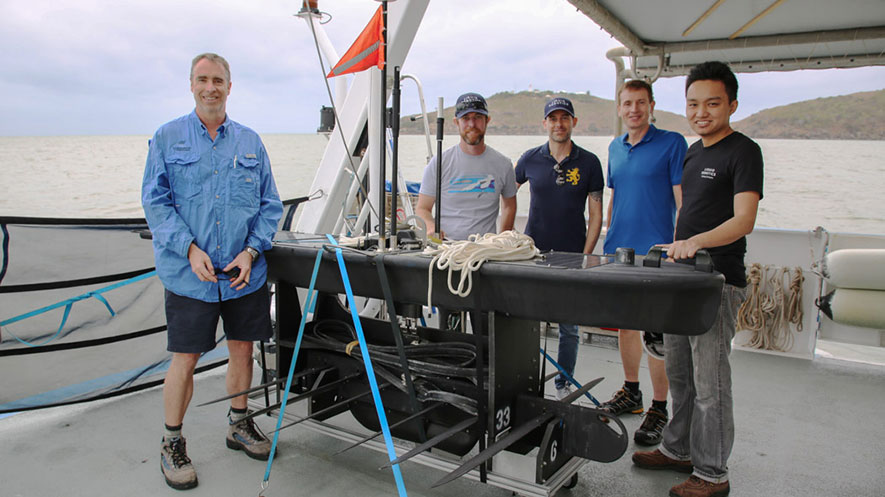In partnership with Boeing, the world’s largest aerospace company, the Australian Institute of Marine Science (AIMS) has demonstrated how a revolutionary high-tech autonomous ocean vehicle, the Wave Glider, can improve monitoring of the Great Barrier Reef and coastal waters.
Completing a recent seven-day open water mission covering 200 nautical miles including parts of North Queensland’s Great Barrier Reef, the use of the Wave Glider was the first major milestone of a five-year joint research agreement between Boeing and AIMS.
The autonomous vehicle, developed by Boeing subsidiary Liquid Robotics, was deployed at the Great Barrier Reef to help assess the health of the coral reefs and ecosystems. Powered by waves and sun, the Wave Glider provided continuous, real-time environmental ocean data using a suite of on-board sensors and software. As it travels along the ocean’s surface, Wave Glider measurements include weather, wave heights, water salinity and pH levels, chlorophyll and more.
Researchers are still analyzing the data captured by the Wave Glider. “We are impressed with the number of different measurements it could conduct at the same time and its ability to transmit the data back to our base immediately and reliably while navigating and performing its mission,” AIMS head of Data and Technology Innovation, Lyndon Llewellyn said.
Dr. Llewellyn said this sort of technology allowed science to measure atmosphere and water over long periods of time because it can operate at sea for several months at a time while following a programmed course or being piloted remotely.
“It was quite extraordinary how the Wave Glider remained on its planned mission,” Dr. Llewellyn said.
“It went where it was told to and it stayed the course like an orienteering champion. “The Wave Glider technology will be an important tool to advance our mission to better monitor the Great Barrier Reef.”
Because of its autonomous nature, Wave Glider frees up human resources to focus on science and not the logistics of collecting data.
“Boeing and our Liquid Robotics team are proud to support AIMS in its mission to monitor the health of the Great Barrier Reef,” said Chris Raymond, vice president and general manager of Boeing Autonomous Systems. “The demonstration proves how autonomous systems like our Wave Glider can improve upon human-based environmental data collection methods while also being safe and affordable.”






